Suchergebnisse für "Factsheet: Energietechnologien gestalten, die für alle sinnvoll und nutzbar sind"
IEA Bioenergy Task 32: Newsletter Vol. 2/2017

Der Newsletter beinhaltet aktuelle Informationen zu Forschung, Implementierung und politischen Maßnahmen sowie Veranstaltungshinweise.
Christoph Schmidl
Herausgeber: bioenergy2020+
Deutsch, 4 Seiten
Downloads zur Publikation
Entwicklung einer Passivhaus- Außentüre

Entwicklung eines "passivhaustauglichen" in Serienproduktion herstellbaren Außentürsystems.
Mehrsprachig
IEA DHC: Artificial Intelligence for Failure Detection and Forecasting of Heat Production and Heat demand in District Heating Networks

Abschlussbericht des Projektes “AI for Failure Detection and Heat Demand and Production Forecast”
Kramer W., Vallée M., Lamaison N., Gölzhäuser S., Wissocq T., Gaoua Y., Bitterling M., Frison L.
Herausgeber: IEA DHC, 2023
Englisch
Innovative Kühlschmier-Systeme In Der Metallzerspanung
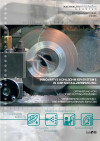
Optimierung von High speed Cutting-prozessen, Verbesserung des Umwelt- und ArbeitnehmerInnen-Schutzes
3/2006
Herausgeber: BMVIT
Deutsch, 6 Seiten
Downloads zur Publikation
World Energy Outlook 2024
Der Bericht der Internationalen Energieagentur (IEA) zeigt auf, wie dringlich der Übergang zu einem nachhaltigen, sicheren und finanzierbaren Energiesystem ist und welche unverzichtbare Rolle dabei der Ausbau erneuerbarer Energien spielt.
Tage des Passivhauses 2019 in Innsbruck
8. November 2019, Treffpunkt um 08:30 Uhr
IIG - Innsbrucker Immobiliengesellschaft, Roßaugasse 4, 6020 Innsbruck, 2. Stock
Symposium: Kurs Zukunft - Innovation durch Nachhaltigkeit
27. Sep 2005
Wirtschaftskammer Österreich - Julius Raab SaalWien, AT
Präsentation von technologischen Erfolgsbeispielen aus der Programmlinie "Fabrik der Zukunft", sowie neuer methodischer Ansätze zur Bewertung von Nachhaltigkeitsaktivitäten als Grundlage der Nachhaltigkeitsberichterstattung. Abschließende Podiumsdiskussion.
SQUARE
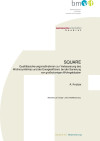
Qualitätssicherungsmaßnahmen zur Verbesserung des Wohnraumklimas und der Energieeffizienz bei der Sanierung von großvolumigen Wohngebäuden
Schriftenreihe
49/2010
A. Knotzer
Herausgeber: BMVIT
Deutsch, 109 Seiten
Downloads zur Publikation
Das Schiestlhaus Am Hochschwab - Alpiner Stützpunkt In Passivhaustechnologie
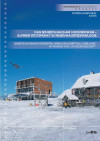
Umsetzung eines integrierten Gebäudekonzepts is „Insellage“im Rahmen von „Haus der Zukunft“
Forschungsforum
2/2005
Herausgeber: BMVIT
Deutsch, 6 Seiten
Downloads zur Publikation
Bio bitumen - bitumen substitute based on renewable raw materials and resulting in energy efficient asphalt
Development of a binder for asphalt based on renewable raw materials. Studies to choose the ideal natural base product, regarding the aspect of utilization of remaining material and the elaboration of practical methods of synthesis were made.
Ausstellung: Baufamilien-Tag
31. Jan 2010
Sonnenplatz Großschönau
3922, Großschönau, AT
Der Sonnenplatz Großschönau veranstaltet am 31. Jänner 2010 erneut einen Baufamilien Tag. Dieses Mal zum Schwerpunktthema "Photovoltaik/Solaranlagen".
Post City Linz – Biodiversität im CO2 neutralen Quartier (Green.diversity.Linz)
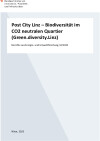
Mit dem Sondierungsvorhaben "Post City Linz" soll gezeigt werden, dass eine derzeit wenig attraktive Industriebrache durch einen innovativen Nutzungsmix aus Büro, Gewerbe, Hotel und Wohnen zu einem mikroklimatisch ambitionierten, energie- und ressourceneffizienten Quartier umgewandelt werden kann. Der Schwerpunkt liegt in der Integration einer Biodiversitätsförderung, einer CO2-neutralen Energieversorgung und innovativem Energiemanagement im Quartier, animal aided design sowie dem Regenwassermanagement am Prinzip der „Schwammstadt”.
Schriftenreihe
32/2025
M. Majcen, T. Weiss, I. Haymerle, S. Kotrba, S. Formanek, A. Boden, L. Boß, S. Nussmüller, M. Stefan, D. Wernig, A. Putrih, A. Frey, P. Doppler, H. Engelke
Herausgeber: BMIMI
Deutsch, 159 Seiten
Downloads zur Publikation
Info-Veranstaltung: Baufamilientag zum Schwerpunktthema "Wohnraumlüftung"
27. Sep 2009
Sonnenplatz Großschönau
Großschönau, AT
Der Sonnenplatz Großschönau veranstaltet am 27. September 2009 erneut einen Baufamilien Tag. Dieses Mal zum Schwerpunktthema "Wohnraumlüftung".
Tage des Passivhauses stießen auf großes Interesse
Über 5000 Besucher stürmten 110 "Haus der Zukunft"-Demogebäude und Passivhäuser in ganz Österreich.
The Potential and Challenges of Drop-in Biofuels 2014

Der Bericht beschreibt den Stand von Drop-in Biofuels, deren Potentiale und mögliche Hürden.
Herausgeber: IEA Bioenergy Task 39
Englisch, 199 Seiten
Symposium: Energiezukunft unserer Gemeinden
31. Mai 2012
Sonnenplatz 13922 Großschönau, AT
Der TDW Großschönau veranstaltet ein Symposium zum Thema EnergieEinsparung-EnergieEffizienz-ErneuerbareEnergie im Kompetenzzentrum am Sonnenplatz Großschönau.
ERA-Net SUSPRISE: Pilotausschreibung gestartet
Gesucht werden innovative Projekte zu den Themen Wassertechnologien und effiziente Nutzung von Rohmaterialien.
(BIO) Gas - Inseltankstelle
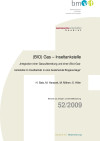
"Integration einer Gasaufbereitung und einer (Bio)-Gastankstelle im Inselbetrieb in eine bestehende Biogasanlage"
Schriftenreihe
52/2009
H. Bala, M. Harasek, M. Miltner, S. Hiller
Herausgeber: BMVIT
Deutsch, 88 Seiten
Downloads zur Publikation
Energieforschungsausgaben im internationalen Vergleich 2018
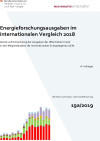
Anteil und Entwicklung der Ausgaben der öffentlichen Hand in den Mitgliedstaaten der Internationalen Energieagentur (IEA).
Schriftenreihe
19a/2019
A. Indinger
Herausgeber: BMVIT
Deutsch, 10 Seiten
Downloads zur Publikation
Info-Session MSc "Renewable Energy in Central & Eastern Europe"
22. Mai 2012
Technische Universität WienWien, AT
Im Rahmen einer Info-Session stellt das Continuing Education Center der Technischen Universität Wien den postgradualen Universitätslehrgang "Renewable Energy in Central & Eastern Europe" vor.
